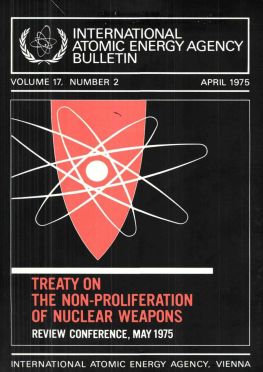A national control system
17-2
Jan, 2026

An effective control of nuclear fissionable material is dependent on three different kinds of control, the industry - laboratory management, a national control system and an international safeguards system. The national systems of control differ greatly between various industrialized countries. Two principal reasons for fact can be mentioned. The type and the amounts for nuclear material may be different depending upon the stage of development of the nuclear industry in the country in question. Another reason may be that the country may wish to establish a very elaborate national system of control in order to minimize the IAEA control as much as possible. The two safeguards agreements between the Agency and Sweden on one hand and the Agency and Japan on the other hand can serve as examples for the understanding of the latitude of the IAEA safeguards system under NPT due to the influence of the national control system. If it thus is apparent that the national control system is strongly interrelated to the international safeguards system it is equally influenced by the control and accountancy systems which exist at the nuclear plants and development laboratories. A detailed study of national control systems and their relations to plant management control would fall outside the scope of this article. Some important features will however be examined. (author)